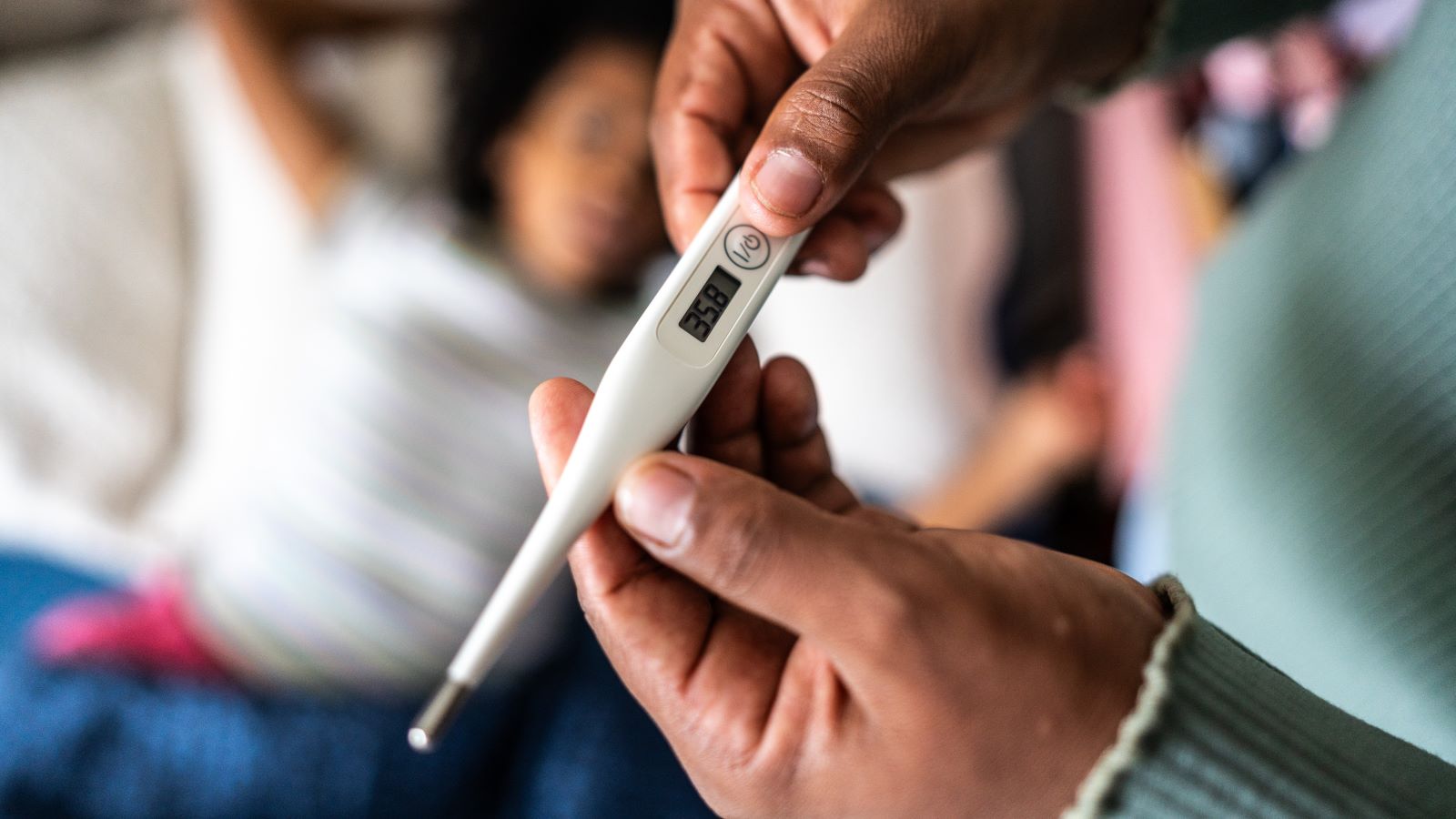<< Back
6 Signs It’s Time to See a Doctor for My Fever

January 24, 2025
You’re burning up — but do you need to treat it? Or will it go away on its own?
When it comes to fevers, it’s about more than just the number on the thermometer.
To take out the guesswork, we turned to Ross Giacomini, DO, a family medicine specialist with Hartford HealthCare Medical Group. He explains when to treat a fever at home — and when it’s time to call your doctor.
What’s your fever trying to tell you?
Think of a fever as your body’s way of sounding the alarm. It signals that an active infection is at play — most likely caused by viral illnesses.
But a fever isn’t just a symptom – it’s also part of your immune system’s fight.
“Visualize it as your body’s natural defense,” explains Dr. Giacomini. “It creates an environment where bacteria and viruses struggle to survive and reproduce.”
Not all fevers are bad.
It might be hard to believe, but it’s true — you don’t need to treat every fever.
“A temperature of 100 to 102 degrees Fahrenheit is considered a low-grade fever,” says Dr. Giacomini. “It might feel uncomfortable, but it’s actually a good sign that your body is working hard to fight off the infection.”
When should you treat a fever?
There’s a point when a higher temperature can do more harm than good.
“When your fever goes above 102 degrees Fahrenheit, you can step in,” says Dr. Giacomini. “Focus on supportive remedies — drink plenty of fluids, get some rest and consider taking anti-fever medications. See a doctor for further care if the fever hangs on or gets worse.”
Age is also an important factor in deciding when to seek help.
“For babies and children under two, a fever lasting more than 24 hours should prompt a doctor’s visit,” adds Dr. Giacomini. “The same applies to adults over 65 or those with weakened immune systems.”
> Related: What to Eat and Drink for a Cold
When do you need medical care?
Sometimes, a fever can’t be managed at home, no matter how much rest or fluids you get. Dr. Giacomini breaks down the key signs that indicate you should see your doctor:
1. Your fever hits 104 or higher.
If the thermometer reads 104 degrees Fahrenheit or above, you need some support.
“A fever this high means you should see your doctor for an evaluation,” says Dr. Giacomini. “They can help figure out what’s going on and get you the right care.”
2. You can’t hold things down.
“If you’re throwing up and can’t keep food or liquids down, it’s more than just not feeling great,” says Dr. Giacomini. “You might get really dehydrated.”
Dehydration can lead to other complications, so it’s important to consult your doctor.
3. You’re weak.
Feeling tired when you’re sick is normal, but extreme weakness or fatigue is a red flag.
“If your fever is keeping you from doing normal activities, you can’t stay awake or your body feels completely drained, go see your doctor,” says Dr. Giacomini.
> Related: 3 Popular Cold Remedies That Can Do More Harm Than Good
4. You’re having trouble breathing.
This isn’t something to wait out.
“If you’re experiencing wheezing, chest pain or difficulty catching your breath, head to your doctor right away,” says Dr. Giacomini.
5. It hurts to pee.
Pain or burning when urinating could signal some underlying issues, like a urinary tract infection (UTI).
“Treating this early can stop it from getting worse and bring much-needed relief,” says Dr. Giacomini.
6. It’s sticking around.
If over-the-counter medications or home remedies aren’t working, the next move is professional care.
“Schedule an appointment if your fever has lasted more than three days,” says Dr. Giacomini. “Also, see your provider if your fever goes away and comes back.”